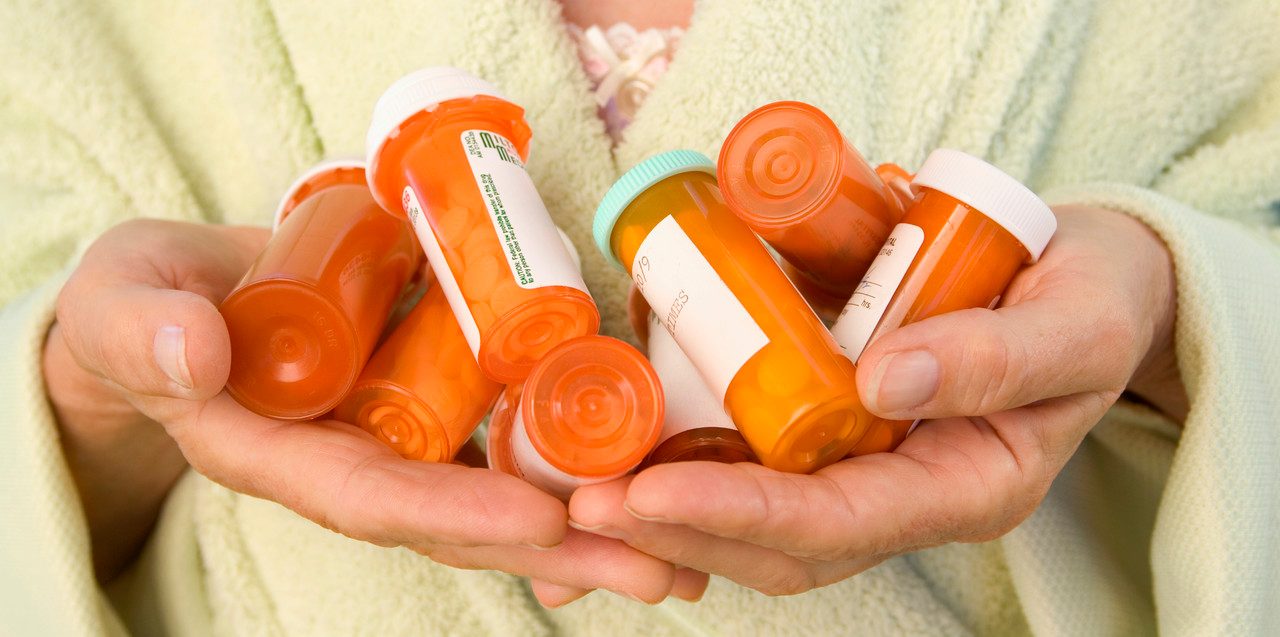What Is Serotonin Syndrome?

Make sure your doctors know everything you take. When people combine some common prescriptions or add supplements, they run the risk of serotonin syndrome.
Millions of Americans take antidepressants, which generally affect the level of serotonin in your brain. Few of them know that they could be running the risk of a potentially fatal problem — serotonin syndrome.
What is serotonin?
Your blood contains many compounds, including serotonin, which plays a role throughout your body.
YOU MIGHT ALSO LIKE: Our Brain and Nerve Care section
What does serotonin do?
Serotonin is a neurotransmitter, a chemical that is released at the end of a nerve to carry an electrical impulse to another nerve cell, muscle, or structure in your body. Nerve cells, also called neurons, in your brain produce and release serotonin to regulate mental functions.
Nerve cells also retrieve neurotransmitters that don’t make it to another cell, a process called reuptake.
Serotonin reuptake inhibitors (SSRIs) like Prozac and other antidepressants inhibit (work against) the reuptake of serotonin, so more of it is available.
But nerve cells can be found beyond your brain and spinal cord. Other nerve cells, especially in your intestines, produce serotonin to regulate important functions like your blood flow, breathing, and digestion.
What is serotonin syndrome?
Many common medications, illegal drugs, and supplements change serotonin levels. Serotonin syndrome occurs when you have a dangerous accumulation of serotonin.
Be especially careful if you get prescriptions from more than one doctor. Serotonin syndrome happens most often when people combine medications, for example an SSRI and a migraine medication or opioid for pain. One in nine Americans takes an antidepressant, and as many as 13 percent get migraines. Now let’s say you get a cold and take Mucinex DM, which also raises serotonin. It’s not that hard to imagine situations when you could overload yourself.
The symptoms of serotonin syndrome can show up within a few hours of taking the medications, but sometimes they appear up to five days later.
Sometimes depressed people intentionally take too much of an antidepressant.
The symptoms of a milder case may go away within a day after you stop the source. But you might need to take a serotonin-blocking drug temporarily, so it’s best to call your doctor right away or go to the emergency room.
Milder serotonin syndrome symptoms include:
- Agitation or restlessness
- Confusion
- Rapid heart rate and high blood pressure
- Dilated pupils
- Loss of muscle coordination or twitching muscles
- Muscle rigidity
- Heavy sweating
- Diarrhea
- Headache
- Shivering
- Goose bumps
A severe case of serotonin syndrome is life threatening. If you experience any of the following symptoms after increasing the amount of serotonin in your body (or see these symptoms in someone else) seek immediate care.
Life-threatening symptoms include:
- High fever
- Seizures
- Irregular heartbeat
- Unconsciousness
Drugs that raise serotonin levels include:
- Selective serotonin reuptake inhibitors (SSRIs): citalopram (Celexa), fluoxetine (Prozac, Sarafem), fluvoxamine, paroxetine (Paxil), and sertraline (Zoloft)
- Serotonin and norepinephrine reuptake inhibitors (SNRIs): trazodone, duloxetine (Cymbalta), and venlafaxine (Effexor)
- Bupropion (Wellbutrin, Zyban), an antidepressant and tobacco-addiction medication
- Tricyclic antidepressants, such as amitriptyline and nortriptyline (Pamelor)
- Monoamine oxidase inhibitors (MAOIs): isocarboxazid (Marplan) and phenelzine (Nardil)
- Anti-migraine medications: triptans (Axert, Amerge, Imitrex), carbamazepine (Tegretol), and valproic acid (Depakene)
- Pain medications: Tylenol with codeine, fentanyl (Duragesic), hydrocodone meperidine (Demerol), oxycodone (Oxycontin, Percocet, Percodan), and tramadol (Ultram)
- Lithium (Lithobid), a mood stabilizer
- Illegal drugs: LSD, Ecstasy, cocaine, and amphetamines
- Herbal supplements: St. John's wort, ginseng, and nutmeg
- Over-the-counter cough and cold medications containing dextromethorphan: Delsym, Mucinex DM, and others.
- Anti-nausea medications: granisetron, metoclopramide (Reglan), droperidol (Inapsine), and ondansetron (Zofran)
- Linezolid (Zyvox), an antibiotic
- Ritonavir (Norvir), an anti-retroviral medication used to treat HIV/AIDS
Here’s the deal
If you’re starting a new medication or supplement, be sure your doctor knows everything else you take, including illegal drugs. Also, if you’re taking an antidepressant and your doctor wants to add another or increase your dose, speak up about any ongoing symptoms of mild serotonin syndrome like diarrhea you might already have. It’s not fun to talk about diarrhea, but your doctor needs to know.
Updated:
March 31, 2020
Reviewed By:
Janet O’Dell, RN